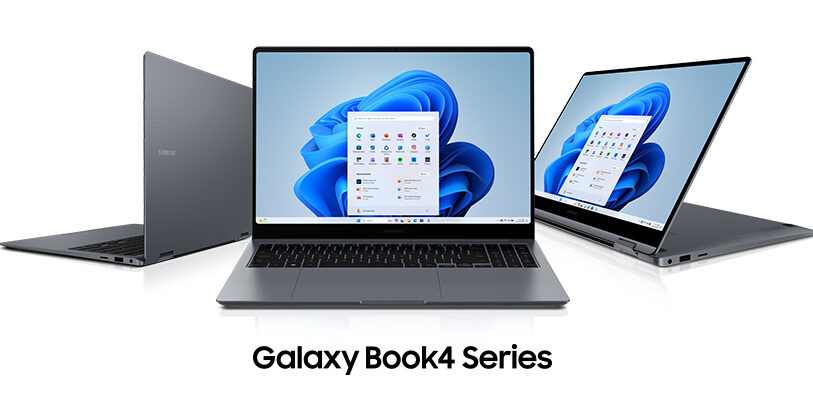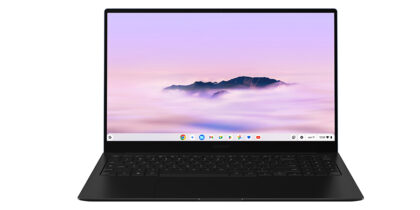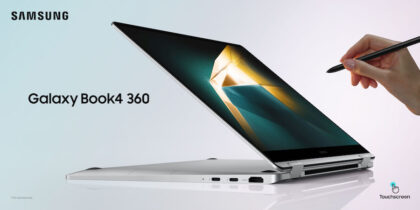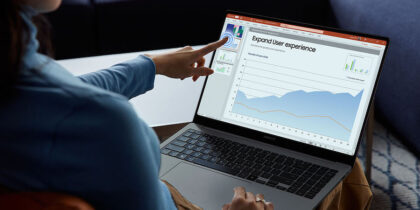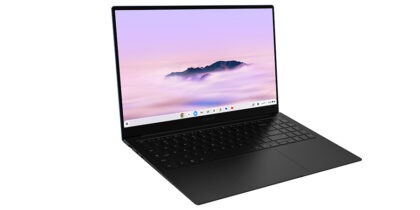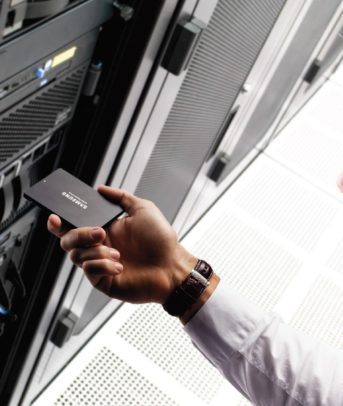Choosing a business laptop today can be daunting, encompassing dozens of models and countless specs from different brands. With the right decision, you’ll set yourself and your team up with a strong foundation to get work done.
This guide will help you make sense of business laptop specs, how they relate to specific use cases and, ultimately, which one is the best fit for your business.
1. Processor
The central processing unit (CPU), or simply the processor, is the brain and brawn behind a business laptop’s overall performance. As its name suggests, it processes commands into actions and information. There are many technical specs associated with processors, but understanding the distinction between Intel Core i7 and i9 can be a great place to start. General business users can work with an i7 processor, while heavy multitaskers or users of performance-intensive programs will likely need an i9.
When it comes to a processor’s clock speed, keep in mind that the higher the GHz, the faster the clock speed and the smoother the user experience will be. It’s also helpful to recognize how many cores the processor has, ranging from two (dual-core) up to eight (octa-core). These multiple cores enable more powerful multitasking: the more, the mightier. Samsung business laptops with Intel EVOTM certification have the performance business users need while remaining lightweight.
Opting for a high-performance CPU and the latest Intel processors like those in the Galaxy Book4 Series — which also comes equipped with a new neural-processing unit (NPU) — empowers your business by establishing a technology foundation that efficiently handles AI. The Galaxy Book4 Ultra also comes with an improved graphics processing unit (GPU) and has Intel Core Ultra 9 processors built in as part of Samsung’s AI PC acceleration program. It is equipped to support AI solutions from over 100 independent software vendors.
2. Security
With cyber threats becoming increasingly sophisticated, you don’t want to take chances. Procure business laptops that build in data protection at every level.
Samsung Knox, for instance, uses a hardware root of trust to ward off BIOS attacks and revert to a backup copy in the event of an incident. Galaxy Book4 Pro, Galaxy Book4 Pro 360 and Galaxy Book4 Ultra all have Samsung’s highest level of Knox protection.
This is in addition to the fact these business laptops are certified as Secure Core PCs by Microsoft for having all its Windows 11 Pro OS safeguards.
3. Microsoft Windows 11
Speaking of the OS, business laptops running Microsoft Windows are available in Home and Pro versions. If you’re looking to provide devices to a team of employees, Windows Pro unlocks administrative tools such as remote desktop capabilities (allowing an IT professional to remotely access a computer for troubleshooting), group policy (managing settings for multiple users) and enhanced cybersecurity features.
If you’re a solo entrepreneur working from home, Windows Home could suffice for your needs, though Pro remains the better pick for extra security and scalability as you grow your business. If you’re shopping for a business laptop now, you’ll want one that’s Windows 11-ready.
4. Immersive display
Traditional desktop monitors start at roughly 24 inches diagonal and can run as big as 49 inches for users who need a larger screen to do intricate visual work. But among business laptops, the sweet spot for screen size is 13 to 16 inches diagonal. If you go much smaller, you’re entering tablet territory.
What’s the best tablet for your business?
Take this quick assessment to see which Samsung tablet would best support your business needs. Download Now
You’ll also want to check resolution and brightness. As a case in point, the upgraded display on Galaxy Book4 Ultra and Pro models gives you a clear view, so you can stay productive on the go — especially when using your PC outdoors. It boasts an incredible viewing experience with a Dynamic AMOLED 2X display that offers clear contrast and vivid color, whether indoors or outdoors.
The devices’ Vision Booster, meanwhile, uses an Intelligent Outdoor Algorithm to automatically enhance visibility and color reproduction in bright conditions, while anti-reflective technology reduces distracting reflections on Galaxy Book4 Ultra and Pro models. Ultra and Pro clamshell models also now offer touchscreens that not only deliver a clear viewing experience but also an optimized and familiar touch-based user interface, just like the experience on your mobile device or tablet.
5. Weight and thickness
In business laptop design, the name of the game is portability. The sleekest models, included in Galaxy Book4 Series, weigh roughly 4 pounds or less:
- Galaxy Book4 Ultra (16-inch display): 4.1 lbs, 16.5mm
- Galaxy Book4 Pro (14/16-inch display): 2.71 lbs / 11.6mm (14-inch), 3.44 lbs / 12.5mm (16-inch)
- Galaxy Book4 Pro 360 (16-inch display): 3.66 lbs, 12.88mm
For hybrid workers who clock in from various locations every week, every ounce is noticeable, and a lighter device is worth the extra cost. Just be sure you’re getting the right combination of portability (weight) and performance. For users who work mostly in one location, a more robust laptop could be a desirable and durable option, particularly if it has more ports.
6. Battery life
A low computer battery is always inconvenient, but it’s even worse when it happens in the middle of work. Business laptop battery specs are often rated in hours, based on average usage. But battery life is a moving target, and it shifts depending on where you’re working, how you’re working and how much power you’re using.
If you’re always on the go or running many programs simultaneously, your ideal device should have long-lasting battery. If you’re primarily at a workstation — with easy access to an outlet — battery life may not be as important. Other common battery ratings include watt hours (WHr) and milliamp hours (mAh), which are a little more complex to contextualize and not usually necessary to calculate. In general, look for a business laptop rated for at least 10 hours of battery power with reputable reviews reporting on standard battery life tests.
7. RAM
Random-access memory, or RAM, represents the amount of data that a computer can store (short-term) for the processor to instantly access. You might see budget mobile devices offering 4GB, but 6GB is really the baseline on a business laptop. If you’re running high-powered apps, you’ll need at least 8GB, and the same applies if you constantly have multiple apps running in the background. If you spend most of your day juggling your email app, a web browser, Microsoft Office and a chat app — while jumping in and out of videoconferences — you’ll want to be equipped with 8GB to 16GB RAM. Graphic designers and programmers, in particular, will thank you for more RAM in their business laptops.
8. Storage
Memory (RAM) and storage are notably different. While RAM allows you to quickly complete functions like opening an app or webpage, storage enables your processor to access permanent files from the hard drive. Business laptops have much more storage than RAM, both quantified in gigabytes (GB), or with storage reaching terabytes (TB). One TB equals 1,000GB.
Some business laptops offer 128GB, but that space may run out for users who work with large files, especially video or high-resolution photos. 256GB is a safer option, unless your workforce manages everything in the cloud, in which case more storage isn’t a sticking point.
Think of RAM as performance, and storage as space. You’ll want to find a balance between the two, tipping the scale slightly in either direction based on the way you work. Need your notebook to be extra fast so you can blaze through tasks? Prioritize RAM. Have lots of files to store on your notebook for easy access? Storage may be more important to you. Keep in mind that you’ll need less storage if you store files in the cloud, making it easier to meet your need for speed. A solid state drive (SSD) is a must for storage these days, compared to older hard disk drives (HDDs) that make laptops heavier and slower. An SSD using the NVMe (non-volatile memory express) interface provides the most optimal performance.
9. Keyboard and touchpad
Technical components like RAM represent an important part of this equation — but so do the physical components of your business laptop. You want both the keyboard and trackpad to function effortlessly and comfortably. Mid-range and higher-end machines tend to focus more on these details than budget devices, which can feel clunkier. It’s primarily a matter of how important the ergonomics are to you, from the quietness of the keys to the smoothness of the trackpad. If you frequently use computer shortcuts, for instance, an advanced trackpad can allow multiple customizable swipe functions, beyond the basics of tapping and navigating. Higher-end business laptops also offer advantages like backlit keyboards that can come in handy when working in a darkened airplane cabin.
10. Camera and microphone
In today’s videoconferencing world, computer cameras and microphones have gone from afterthoughts to essentials. Galaxy Book4 Series makes it easy to turn your camera on and off in an instant — and catch every detail of your call with screen recording. These business laptops also have high-definition audio with background noise removal, so you can be an active participant even from a busy home office or cafe.
It’s hard to top a modern mobile device for videoconferencing quality, but with the right tools you can come close. Make sure the device you choose has at least a 1080P internal camera and dual array mic so you look and sound professional. Unless you’re running a podcast or webinar series, external webcams and mics add unnecessary clutter that undoes the convenience of a business laptop. A pair of quality earbuds, however, could certainly be considered essential in their own right.
11. Ports
Do your other devices connect to USB, Thunderbolt or a combination of ports for different devices? What type of USB port do you need? How about Ethernet, HDMI or microSD? Not only do you need your business laptop to have the right types of ports, you may want several ports of the same kind. More ports mean fewer dongles and easier connectivity. To make your work life easier, aim for at least a Thunderbolt, USB-C, USB 3.2 and HDMI port. Thunderbolt is especially fast and versatile for business users. Some business laptops may sacrifice ports for the sake of ultra-slim design, but that’s not always necessary anymore, as devices such as Galaxy Book4 Series continue to become lighter, more compact and more powerful without sacrificing ports. The top Galaxy Book4 Series models even offer enhanced port options such as HDMI 2.1a.
12. Connectivity
Whether you’re working in the office, at home or somewhere in between, your business laptop should make it easy to get online. While most machines will offer Wi-Fi 6, advanced devices like those in Galaxy Book4 Series provide Wi-Fi 6E. The latter offers increased bandwidth, less interference than other bands and support for more concurrent connections, which can reduce network congestion and deliver overall better performance.
Putting it all together
A bit of research goes a long way, especially when it comes to technical specifications. Now you can compare any and every business laptop with confidence, and quickly decode its key features like a pro.
Laptop and smartphone capabilities combine in Galaxy Book4 Series, designed to be as mobile as they are powerful. Explore exclusive business pricing, discounts, financing options and other deals on Galaxy Books, mobile devices, tablets and more through Samsung Business Direct.
